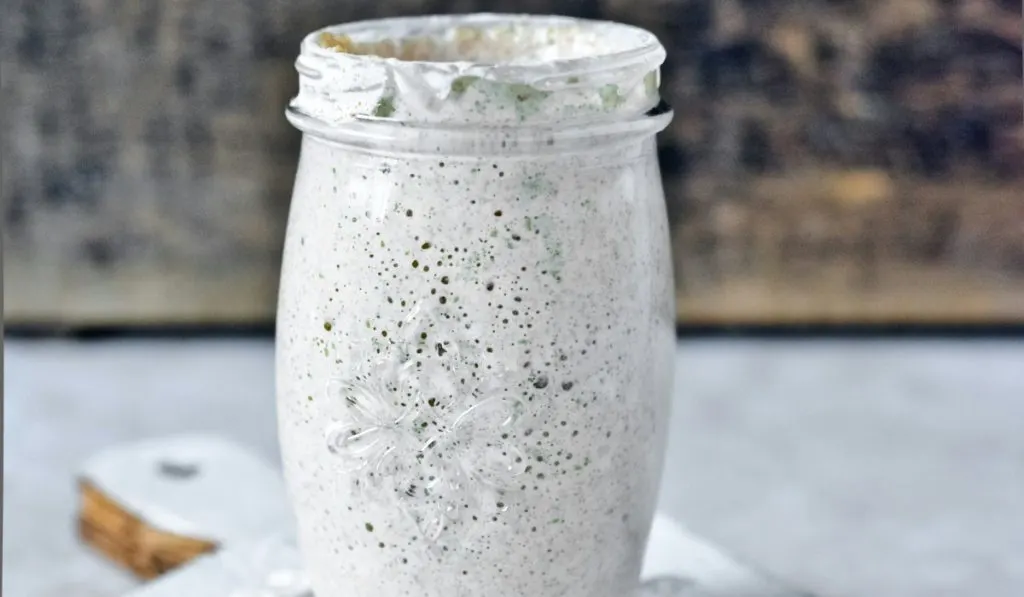
Is your bread lacking that special something? Frustrated with supermarket loaves that just don’t hit the mark? Don’t worry, we’ve got the perfect solution that will transform your baking experience and elevate your homemade bread to artisan status. Buy a Sourdough Starter today and unlock the secrets to creating delicious, artisanal bread in your own kitchen!
TL;DR:
- Discover the benefits of buying a sourdough starter.
- Learn how a sourdough starter can improve your bread.
- Get tips from an experienced baker on maintaining your starter.
- Explore the unique flavor and health benefits of sourdough bread.
The Allure of Sourdough: Why You Need a Starter
Sourdough bread has become a household name, renowned for its rich flavor, chewy texture, and impressive health benefits. But what makes sourdough so special? The answer lies in the starter – a magical mixture of flour and water teeming with natural yeast and lactobacilli. This living culture not only leavens the bread but also imparts a distinct taste and texture that sets sourdough apart from other breads.
Unlike commercial yeast, which is a single strain of yeast, a sourdough starter is a complex symbiosis of wild yeast and beneficial bacteria. This combination works harmoniously to ferment the dough, resulting in a bread that is both flavorful and nutritious.
Benefits of Using a Sourdough Starter
- Enhanced Flavor: Sourdough bread has a unique, tangy flavor that is unmatched by commercial yeast bread. This distinctive taste develops during the long fermentation process as natural yeast and bacteria break down the flour’s carbohydrates, producing lactic and acetic acids. These acids give sourdough its characteristic tang and contribute to the complexity of its flavor profile. Each bite offers a delightful combination of sour, sweet, and umami notes, making it a favorite among bread enthusiasts.
- Better Texture: The natural fermentation process creates a chewy, moist crumb and a crisp, caramelized crust. Extended fermentation allows the gluten network to develop fully, resulting in a bread with a more elastic and chewy texture. The organic acids produced during fermentation strengthen the dough and help create the desirable open crumb structure with irregular holes. The crust, which forms as the bread bakes, is thick and crispy, providing a satisfying contrast to the soft interior.
- Healthier Option: Sourdough is easier to digest and has a lower glycemic index, making it a healthier choice for many people. The fermentation process breaks down some of the gluten and starches in the flour, making the bread more digestible and reducing its glycemic load. This means sourdough bread causes a slower, more gradual rise in blood sugar levels compared to bread made with commercial yeast. Moreover, the lactic acid bacteria in sourdough starter increase the availability of nutrients in the bread, such as B vitamins, folate, and minerals like iron, zinc, and magnesium. Sourdough also contains prebiotics, which support a healthy gut microbiome by feeding beneficial gut bacteria.
Why Buy a Sourdough Starter Instead of Making One?
While the idea of creating your own sourdough starter from scratch sounds appealing, it can be a time-consuming and finicky process. By purchasing a starter from a reliable source, you can jump straight into baking delicious sourdough bread without the hassle. Here are a few compelling reasons to consider buying a starter instead of making one yourself:
Quality and Consistency
When you buy a sourdough starter, you’re getting a product that has been carefully cultivated and tested for quality and consistency. Professional suppliers often maintain their starters under controlled conditions, ensuring that the balance of wild yeast and bacteria is optimal for fermentation. This means you can expect predictable results every time you bake, something that can be difficult to achieve with a homemade starter. A well-maintained starter from a trusted source ensures that your bread will rise properly, have the desired texture, and develop the signature sourdough flavor with every bake.
Time-Saving Convenience
Creating a starter from scratch can take up to two weeks of daily feeding and monitoring. This involves discarding part of the mixture and replenishing it with fresh flour and water every day, a process that requires patience and precision. By purchasing a ready-made starter, you save time and can start baking almost immediately. Instead of waiting for your homemade starter to mature and become stable, a purchased starter allows you to begin experimenting with sourdough recipes right away. This is particularly beneficial for busy individuals or those new to sourdough baking who want to avoid the initial trial and error phase.
Reliable Performance
Commercially available starters are often the result of years of refinement and testing. They are designed to be robust and resilient, capable of thriving in a variety of environmental conditions. This reliability can be a significant advantage for home bakers, especially in areas with fluctuating temperatures or humidity levels that can affect the performance of a homemade starter. With a purchased starter, you have the assurance that you are starting with a proven, high-quality culture that has been optimized for success.
Access to Unique Cultures
Another benefit to buy a sourdough starter is the opportunity to access unique cultures that you might not be able to develop at home. For instance, some suppliers offer starters with distinct regional characteristics, such as the famous San Francisco sourdough starter, known for its particularly tangy flavor. These unique starters can add a special touch to your bread, giving you a taste of different sourdough traditions from around the world.
How to Choose the Best Sourdough Starter
Not all sourdough starters are created equal. Here are some tips to help you choose the best one for your baking needs:
Look for Reputable Sellers
Choose a seller with good reviews and a reputation for quality. This ensures you’re getting a reliable starter that will perform well in your baking.
Consider the Origin
The flavor of your sourdough bread can vary depending on the origin of the starter. Look for starters from regions known for their sourdough, such as San Francisco.
Check the Ingredients
A good sourdough starter should contain just flour and water, without any additives or preservatives.
Maintaining Your Sourdough Starter
Once you’ve purchased your starter, maintaining it is key to successful sourdough baking. Here are some expert tips from our experienced baker, Sandra Olvera:
Feeding Schedule
Feed your starter regularly with equal parts flour and water. Most starters need feeding once a week if kept in the fridge or daily if kept at room temperature.
Proper Storage
Store your starter in a non-reactive container, such as glass or food-grade plastic. Keep it covered but not airtight, to allow gases to escape.
Reviving a Dormant Starter
If your starter has been neglected, it may need a few feedings to become active again. Discard half and feed it twice a day until it bubbles and rises consistently.
The Joy of Baking with Sourdough
Once your starter is active, the fun begins! Sourdough baking is an art that combines science with creativity. Experiment with different flours, hydration levels, and baking techniques to create your perfect loaf.
Flavor Experimentation
Try adding different ingredients like herbs, seeds, or dried fruits to your dough for unique flavors and textures.
Perfecting Your Crust
Bake your bread with steam to achieve a crispy crust. This can be done by placing a pan of water in the oven or spraying the loaf with water before baking.
Conclusion: Embrace the Sourdough Journey
To Buy a sourdough starter is the first step towards mastering the art of sourdough baking. With a reliable starter and these tips, you’ll be well on your way to creating delicious, homemade bread that will impress your family and friends. Happy baking!
FAQs
What is a sourdough starter?
A sourdough starter is a mixture of flour and water that has been fermented by wild yeast and bacteria, used to leaven and flavor sourdough bread.
How long does it take to activate a purchased sourdough starter?
Most purchased starters can be activated within a few days by following the seller’s instructions, which typically involve feeding the starter with flour and water.
Can I use whole wheat flour to feed my starter?
Yes, you can feed your starter with whole wheat flour, but it may require more water and produce a denser bread.
How often should I feed my starter?
If kept at room temperature, your starter should be fed daily. If stored in the fridge, it can be fed once a week.
Why is my sourdough bread dense?
Dense bread can result from under-proofing, not enough kneading, or a starter that is not fully active. Ensure your starter is bubbly and active before baking.
Can I freeze my sourdough starter?
Yes, you can freeze your starter for long-term storage. Thaw it and feed it several times to revive it before use.
What is the best way to store my sourdough bread?
Store sourdough bread in a paper bag or a bread box to keep the crust crisp. Avoid plastic bags, as they can make the crust soggy.
Can I share my sourdough starter with others?
Yes, sourdough starters can be shared. Give a portion to a friend with instructions on how to feed and maintain it.
What is the difference between sourdough and regular bread?
Sourdough bread is leavened with a natural starter, while regular bread is typically leavened with commercial yeast. Sourdough has a tangier flavor and is often more digestible.
How do I know if my starter is ready to use?
Your starter is ready to use when it is bubbly, has doubled in size, and passes the float test (a small spoonful floats in water).
Join Us and Transform >
Don’t Be an Amateur! Master the Art of Sourdough Bread!




Leave a comment